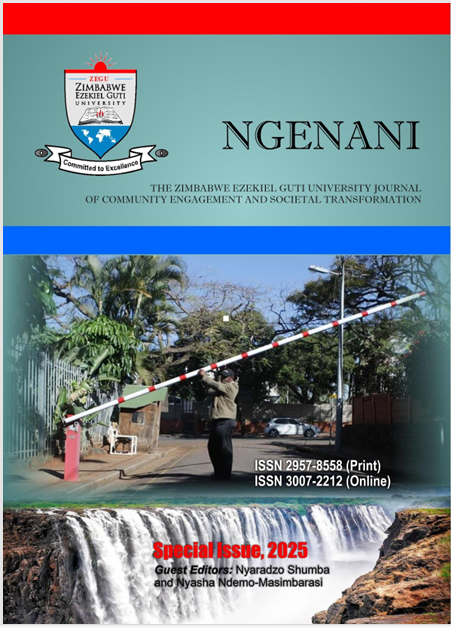Exploring Rural Women’s Livelihood Resilience Strategies: Impacts of the 2023/2024 El Niño-Induced Drought in Zimbabwe: A Case of Mutawatawa in Mashonaland Province, Zimbabwe
DOI:
https://doi.org/10.71458/pa8r2y95Keywords:
disasters, climate change, gender, gender inequalityAbstract
The 2023/2024 El Niño-induced drought in Zimbabwe exacerbated food insecurity, water scarcity and economic instability, with rural women disproportionately affected due to their reliance on agriculture and natural resources for survival. Climate change disproportionately impacts rural communities, with women often bearing the brunt of its effects due to their reliance on natural resources and limited access to adaptive and resilient capacities. Disaster events; both of natural origin and human-made, result in a significant number of forced temporary evacuations and permanent internal and international displacement. The study was conducted in Mutawatawa of Mashonaland East Province, one of Zimbabwe's driest regions. This study assesses rural women’s livelihood resilience strategies after the 2023/2024 El Niño--induced drought. This study adopts a qualitative research paradigm and a case study design. Fifteen participants were selected using purposive sampling. Focus group discussions (FDGs), interviews and observations were carried out in the area to gather data on the livelihood resilient strategies adopted by rural women of Mutawatawa. Random sampling and face-to-face interviews were carried out. The research reveals that rural women living in Mutawatawa are vulnerable to food insecurity due to the effects of the 2023/2024 El Niño-induced drought. The local livelihoods show high vulnerability to climate change due to notable low adaptive capacity, affecting women mainly. The high level of vulnerability to changing climate is exposing the study population to increased prevalence of poverty, crop and livestock failure, food insecurity, malnutrition, disease and rural-urban migration, among other impacts.




